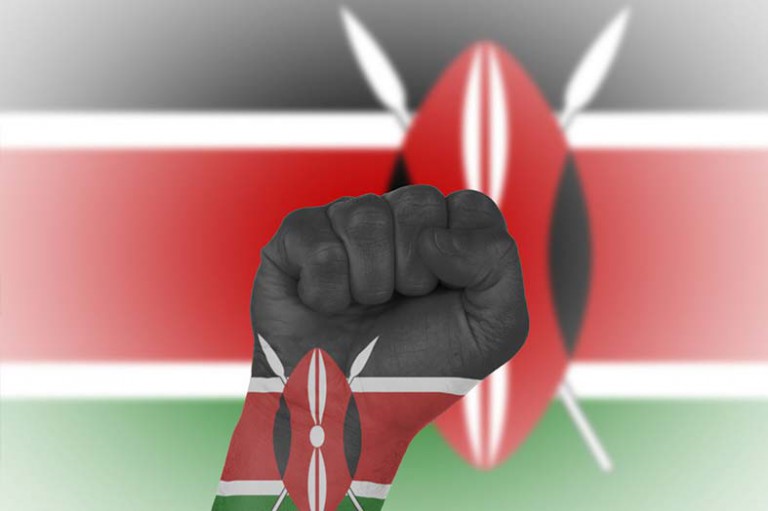“plus ça change, plus c’est la même chose”
Jean-Baptiste Alphonse Karr
I wonder if Jean Baptiste knew that these words would later shape themselves into a phrase that would be echoed across the world and be widely relevant almost 200 years later. Although perhaps, the phrase itself would show that it was here to stay, like a self fulfilling prophecy, “the more things change, the more they stay the same.”
It’s particularly interesting to think around now in this time of entrepreneurs and artists. When, on the edge of frustration, people are beginning to try new things. When change is not only the thing that we see, but the thing that we are driven by. The need for change is suddenly more urgent, is here. Buzzwords like “digital revolution” and “second liberation” are being thrown around but what do they mean?
I ask what they mean in light of the memory a teacher’s strike that fizzled out with no real benefits to the teachers. I ask what they mean as government procurement continues to surprise us with soap and wheelbarrows. I ask what they mean to the 40 sex workers killed across the country every month. I ask what they mean for those in the shrinking space that is civil society.
I ask because this question only speaks to whose revolution is it anyway? Are the discussions that are happening about addressing the issues that we have centered or about creating a new elite? Whose revolution is it anyway?
It becomes even more interesting as this thing we are watching begins to take on a familiar shape. A shape/an energy that we have seen before. And, with the taking of this shape we must remind ourselves to look to those that worked using the same energy, and what that has translated to today.
To see Brainstorm, for example, in isolation is to ignore other forms of critical discussion publications that went into creating the general psychology (for lack of a better word) as we know it. Publications like Mwakenya, which worked in a highly policed Kenya by Moi had him issuing threats in public:
“From today you should keep quiet. I don’t want to hear anything again about Mwakenya. Keep quiet. The government will deal with them one by one. We will collect them so don’t mention Mwakenya again. Let’s keep quiet and go on collecting them. I am happy that we have uncovered them and they are naming their fellow collaborators. If you were involved in this thing you should be worried. I think you can hardly sleep because you are scared. When you hear a knock on the door, you think those friends have come.”
We Lived to Tell, Pg 3 – 4
We know, because history exists, that Moi’s Kenya was not kind to freedom of speech. Giving room to then build off that fact it is not hard to imagine that there must have been a lot of organizing and trust around creating something that would scare someone who had spies everywhere. To even begin to come up with a structure to undertake that task would be a lot. Yet, it was done. Many people were involved.
But, even with the radical nature of Mwakenya, there is still need for a second liberation, for a reminding. For something to happen (and something is, indeed, happening. To be unaware of it is to be willfully obtuse to the inevitable). And, as something is happening, it is important to remember that things happen, and have been happening for a long time. Important to not carry the mistakes of the past models with us into an even more uncertain future.
The problem with saying “something is happening” is how ominous it sounds. Part of it is a coming of age, listening tongues collectively speaking. This, then makes it important to pay attention to what tongues are saying what, who is speaking? What that are they saying?
“We are also a political class with a unifying ideology”
Basil
“My feminism will be intersectional or it will be bullshit!”
Flavia Dzodan
Class is difficult to discuss. There is something pervasive and slippery about it. Because is not a “real” thing with tangible references in the world every space gives the word a different abstract definition – often with different dimensions. Given this then, what is class? How do we touch it? How do we imagine it?
“To call oneself a babi in Kenya is to declare one untouchable. To ask, “Mta’do?” without the arrogance of Kenya’s political class. Without the violence of a country at war with its own. It is to say, “I am telling you this, and I am aware of the risk I take with an articulation of this kind but I am not afraid. Because I have no reason to be afraid”. It is to say, in many ways that even within one’s vulnerability (because there’s an ever-present vulnerability embodied in queerness) one’s body is not available to the violence it attracts if unbabied. Also, it is to say, “You might not like what I am telling you about me right now but you are going to have to listen to me because babiness is listened to in this country”
Neo Musangi,, Queer Desire and Displacement (Or When an Acronym is not Enough)
Ubabi huskizwa.
And that bothers me. Are we doing the work of change or just looking for our kind? We are echoing speaking, listening and encouraging. This is important. And this we must continue to do. But are we also taking the path that involves doing the actual work? The work of engaging the work of exchanging, speaking and listening? Or are we, together in our knowledge carrying out an elaborate “let’s point and laugh?” Is the work we are doing intersectional, or is it bullshit?



